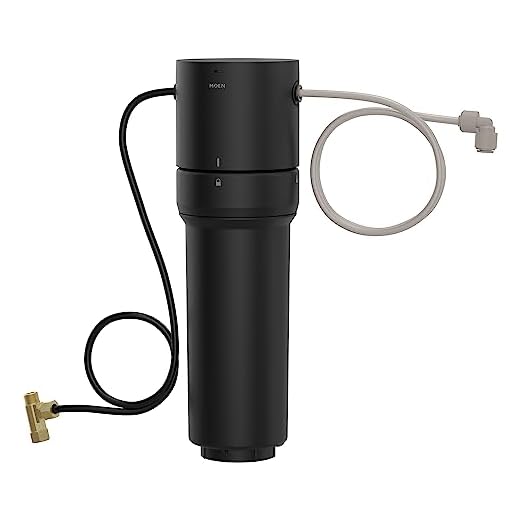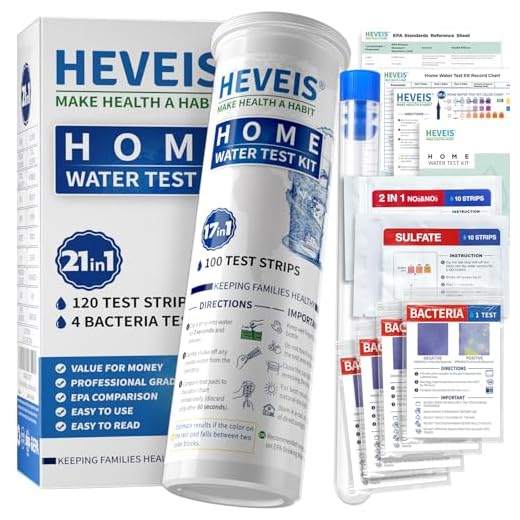




How to Perform a Basic Water Filter Check
Checking your water filter regularly is crucial for ensuring its effectiveness. Begin by inspecting the filter’s exterior for any visible damage, such as cracks or leaks. If you notice any issues, it may be time for a replacement. Next, locate the manufacturer’s guidelines for maintenance intervals. Some filters require monthly checks, while others may have longer periods. Keeping track of these recommendations can help you stay proactive in maintenance.
After the visual inspection, proceed to test the water quality. Fill a glass with water from the faucet and examine its clarity, odor, and taste. Any unusual characteristics could indicate that your filter is not performing optimally. If you notice significant changes in water quality, consider conducting a more thorough testing process or contacting a professional for assistance. Regular check-ups can prevent potential health risks associated with contaminated water.
Essential Steps for Homeowners
Regular inspection of the water filter is crucial for optimal performance. Homeowners should check the filter for visible signs of wear and tear, making sure there are no cracks or leaks in the housing. It’s also important to replace filter cartridges according to the manufacturer’s recommendations. Keeping a maintenance schedule can help ensure that filters are changed at the appropriate intervals, preventing reduced water quality.
Monitoring water taste and odor is another essential practice. Any sudden changes can indicate filter issues or contamination. Homeowners should also keep an eye on water pressure; a significant drop might suggest that the filter is clogged and needs immediate attention. Conducting these simple checks can enhance the longevity and effectiveness of the water filtration system.
Advanced Testing Methods for Water Filters
Homeowners seeking to ensure their water filters operate effectively can explore various advanced testing methods. One common approach involves water sampling, where professionals collect samples from various points in the home’s plumbing system. These samples are then analyzed in a laboratory for contaminants that may bypass the filter. This method provides a detailed picture of the water quality, identifying specific impurities present and assessing the filter’s performance.
Another effective technique is utilizing advanced filtration testing kits available on the market. These kits often include reagents that react with specific contaminants, providing immediate results about the water’s safety. They may also include digital components that measure parameters such as pH levels, turbidity, and total dissolved solids. Employing these advanced methods can give homeowners critical insights into their water quality and the functionality of their filtration systems.
Utilizing Professional Services for Comprehensive Analysis
Hiring professional services for water filter analysis offers a higher level of scrutiny than what most homeowners can achieve on their own. These experts bring specialized knowledge, advanced testing equipment, and experience to assess both the functionality of the filter and the quality of the water it dispenses. They conduct tests that can identify contaminants and evaluate the effectiveness of the filtration process. This thorough assessment not only helps in ensuring safe drinking water but also extends the lifespan of the filtration system.
Relying on experts can also provide homeowners with tailored recommendations for maintenance and potential upgrades. By understanding the specific needs of their water source, professionals can suggest systems suited to local water quality conditions, addressing any unique issues that might not be apparent through simple DIY checks. Utilizing these services creates peace of mind, knowing the home’s water supply is consistently safe and clean.
The Cost of Neglecting Water Filter Maintenance
Neglecting water filter maintenance can lead to significant financial repercussions. Many homeowners assume that once a filter is installed, it will function effectively without any further attention. Over time, a clogged or inefficient filter may allow contaminants to enter the water supply, potentially causing health issues that could result in costly medical bills and treatment.
Additionally, failing to maintain filters can shorten their lifespan. Replacement filters can become more expensive over time, especially if the system is inadvertently damaged due to lack of upkeep. Consequently, regular checks and maintenance become not just a matter of safety but also a financially wise decision for homeowners aiming to avoid unnecessary expenditures.
Financial Implications of Poor Water Quality
Neglecting water filter maintenance can lead to serious financial repercussions over time. Contaminants in untreated water can cause damage to plumbing systems and appliances, resulting in costly repairs or replacements. Health issues arising from poor water quality can also lead to increased medical expenses due to illness and treatments related to exposure to harmful substances.
In addition to the direct costs of repairing damage, the financial impact extends to everyday expenses. Purchasing bottled water or emergency filtration solutions can add up quickly. Homeowners may also face higher utility bills as inefficient systems struggle to deliver clean water. Regular maintenance and assessment of water filters not only ensure safety and health but also protect against rising costs in the long run.
FAQS
Why is it important to continuously assess my water filter?
Continuous assessment of your water filter ensures that it is effectively removing contaminants, maintaining water quality, and preventing health risks associated with poor filtration.
How often should I check my water filter?
It is recommended to perform a basic check every month and schedule a more thorough assessment at least every six months, depending on your water source and filter type.
What are the common signs that my water filter needs maintenance?
Common signs include changes in water taste or odor, reduced water flow, visible sediment in the water, or a warning indicator on the filter system.
Can I perform water quality tests at home?
Yes, homeowners can use basic testing kits available at local stores to check for common contaminants; however, more advanced testing is recommended for a comprehensive analysis.
What could happen if I neglect my water filter maintenance?
Neglecting maintenance can lead to increased health risks from contaminants, potential damage to plumbing systems, and higher long-term costs due to the need for more extensive repairs or replacements.
Related Links
Historical Overview of Water Filter Problem-Solving Techniques
What to Check if Water Flow is Reduced
Roundup of Expert Tips for Water Filter Maintenance

